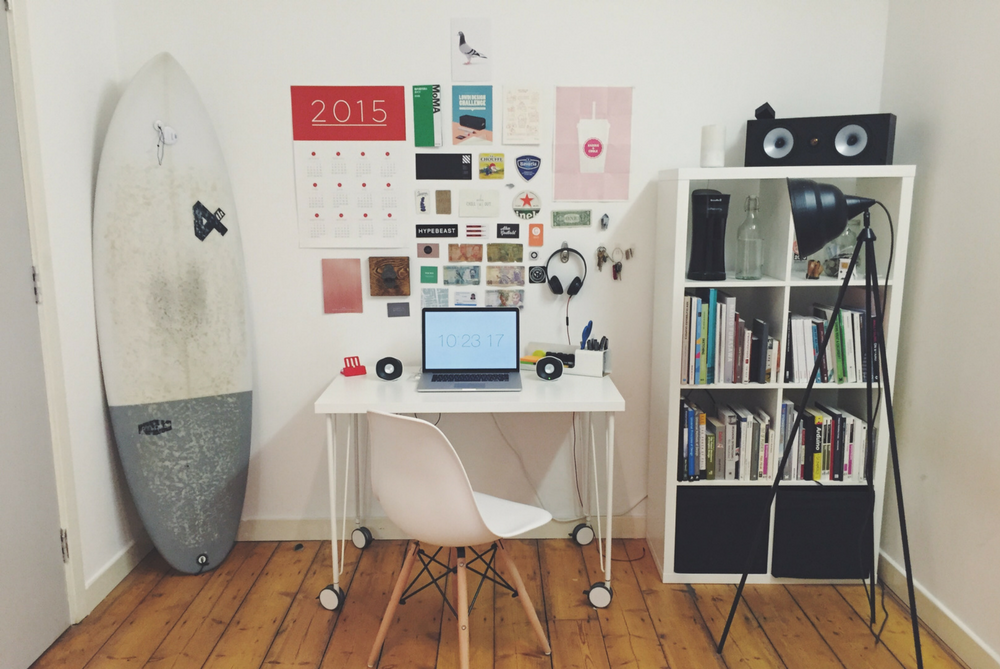
Top Tips for Home Workers
In 2015, the TUC reported that 4.2m people across the UK were working from home. In terms of a percentage breakdown, that meant that 13.7 per cent of the British workforce were regularly working from home. Employers do face new challenges of trust as well as legal requirements in looking after a remote workforce, but many organisations realise that they can attract and retain talented staff by offering a flexible approach to work, and that a healthy work-life balance contributes to individual motivation and performance, business success and growth. Indeed, here at B2E the majority of our team work from home (and across the country) for at least part of the week and we are a very happy bunch!
But what about the homeworkers themselves in this new way of working? How do you transition from your daily commute and a formal office environment, perhaps with visibility through regularised hours and sitting next to your colleagues, to a home working arrangement which relies on a large degree of mutual trust? How do you work effectively, maintain human contact and still ensure you get the work-life balance right? These are some of my personal suggestions having worked from home for a number of years now as part of remote working teams…..
1. Sort your space and technology
The side of the kitchen breakfast bar just won’t cut it for long term home working. You need a clearly defined, quiet and organised space which is set up with the proper office equipment and chair to do your job effectively. Depending on how paperless your new world is, you may require storage for your work materials (as there is no longer the office pedestal to cram with paperwork.) I find that a proper feeling of entering and leaving the work space at the start and end of my day is vital.
Mobile technology is the saviour of the home worker and helps you to mimic some of that in-office team culture — investigate the best price packages for loading up your superfast Broadband, your instant messaging tools, home printer, phone line (if you need one) and check your mobile phone signal does work from where you plan to base yourself. There are also plenty of Apps for mobile over Wifi if your local signal is poor.
2. Time management and setting targets
You will be given a lot of autonomy when you work from home — it’s unlikely that there will be a daily check-in with your manager so you need to set your own daily, weekly, monthly schedule to ensure that you meet your short and long term goals. Look for opportunities to set up informal status check-ins with your colleagues to keep you on track. In the longer term, don’t forget about your self-development and training plans.
3. Find other homeworkers and get social
The biggest shock for me as a homeworker was the realisation that it can be very lonely at times, so you need to be proactive about seeking out other contacts for face to face interaction. I recently read an article in the Daily Telegraph about the author Jane Green who, as the result of feelings of isolation, and a desire for more professional interaction, invited other author friends to rent an office with her which has then grown to her taking on an entire building as a co-working creative office space. Many towns and cities have home working shared space ‘hubs’ where you can occasionally book a hot-desk, as well as a longer-term workspace — these can be great for meeting other homeworkers and professionals from your town. Join the local branch of your professional association and go to meetings and connect through LinkedIn. Look for local professional working lunches and get social through (professional) Social Media. And of course, if there are opportunities to come into your company office for work events try to factor them in –to maintain visibility with your employer and that all important human contact with your colleagues.
4. Get exercise and sunlight
In a traditional office commute there is the walk to and from the office location, a breath of air to grab a sandwich at lunchtime and maybe a gym session built in somewhere en-route too. When working at home, the benefits of a 15 second commute can also mean you also forget to go outside! Remember to factor in regular bursts of fresh air outside as part of your breaks (and take the opportunity to enjoy your beautiful home surroundings) — you need sunlight exposure to boost your levels of vitamin D which is vital to enable the body to absorb calcium and phosphate from your diet. And don’t forget that regular exercise too — it will keep you more alert for work, ensure you don’t feel claustrophobic at home as well as help your waistline — there is a lot of evidence now that we need to sit down less, which can be tricky for those of us who are working from home.
5. Manage the food
Maybe this reveals too much about me personally, but it’s easy to become a snacker when you are homeworking — only you know what the trigger foods are, but do ensure that you have healthy options at home and do try to have a proper lunch. Grazing at the desk is very tempting, but I personally find formal meal times a useful break point during the day as well as more likely to result in healthier choices. There is a famous curly-haired nutrition and fitness chap who likes to use the phrase “Prepare like a boss” in terms of healthy meal prep and he’s probably right.
6. Don’t blur home and work
When you are working at home, it is not Netflix time or childcare time or washing sorting time…. And similarly when you are not working you need to avoid to temptation to constantly check in to the home office which is never offline and within a few steps easy reach. Blurring work and other activities could be a sign that you are avoiding the things that really need to be done. Set the goals and timings for the work time and the home time to maintain the separation.
And finally: Review and re-review
You may be working on your own from home without daily management supervision, but you still need to continually review the situation just as you would in an office-based job. Even if you do not have a formal checkpoint with your employer, it’s worth standing back from time to time to review whether homeworking is really an effective solution for your current role … … And do consider the option of setting up homeworking for a trial period only if you or your manager are not sure whether it is a long term working practice.
About the author, Nicola Smith
Nicola is a member of the B2E Account Management team & has been a homeworker for the last 2+ years with us, as well as a regular homeworker for other clients, juggling work and family life. Her background is in People & Change Management having worked as a consultant at Accenture for 12+ years prior to starting a family.










